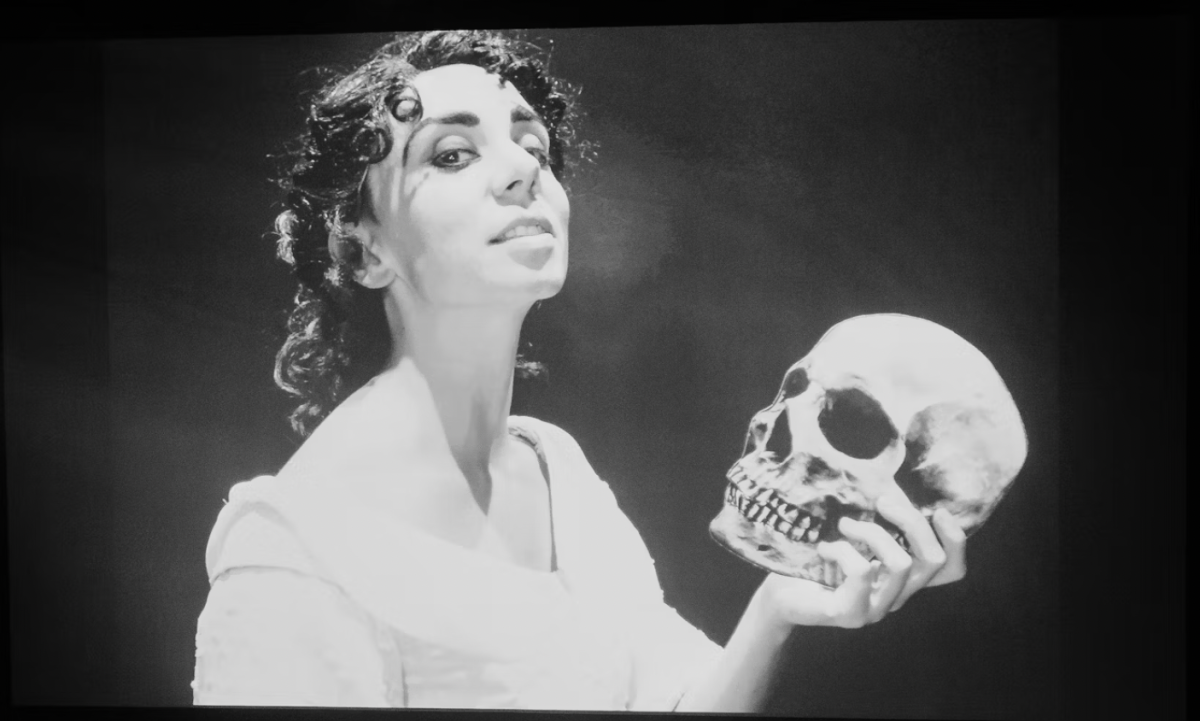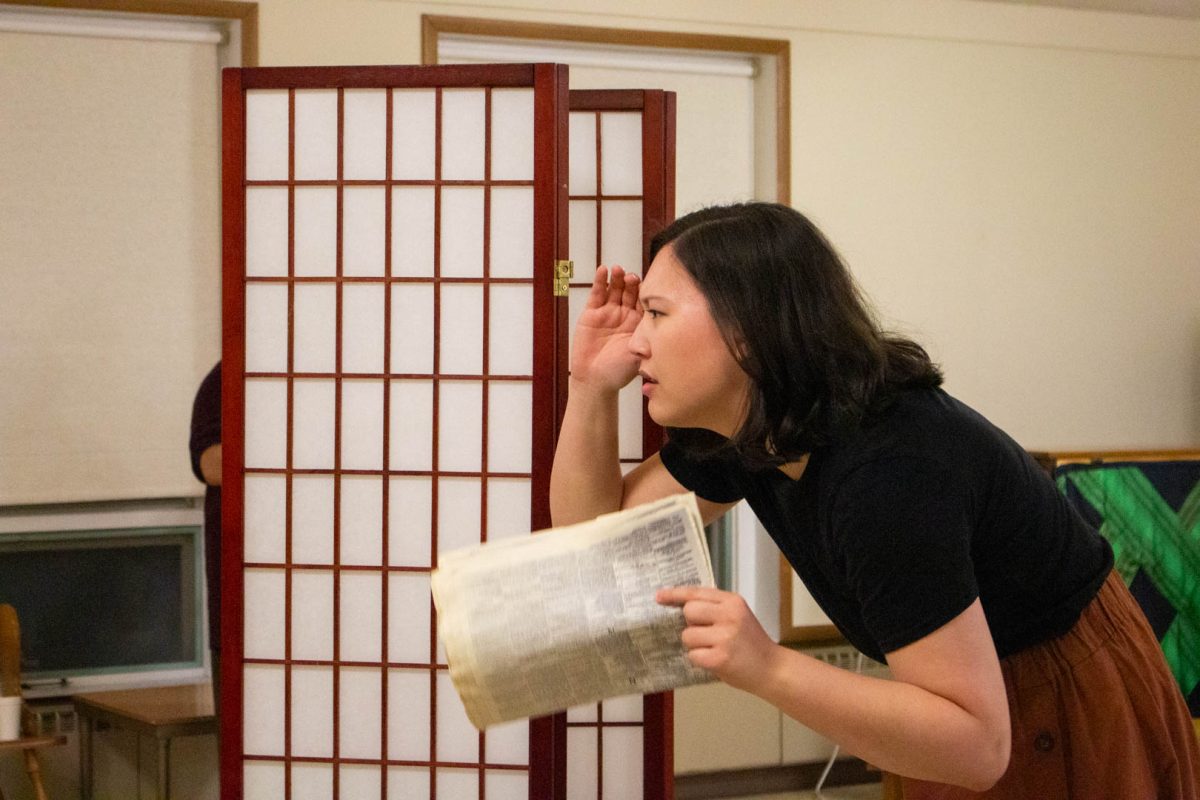In the StageQ production of “Make Me a Song,” the singers argue that heart and music equal song and consequently a well-done production. This musical is a collection of songs composed by Tony Award-winning composer William Finn, famous for his acclaimed songs in the Broadway musical “The 25th Annual Putnam County Spelling Bee.”
Unlike popular musicals such as “Wicked” or “Rent,” “Make Me a Song” has a small cast (five actors) who only perform songs and have no dialogue. All the performers sang beautifully, especially Nicole Riege, who had a melodious voice that harnessed the power to reach nearly unattainable registers.
While the singing was exceptional, their dance moves were often a bit exaggerated for the low-key nature of the show. Rather than the sporadic Gene Kelly-like dance moves, some of their best formations involved the singers sitting still on wood stools.
With the absence of dialogue, the musical had no real plot, but a number of underlying themes that highlighted everyday experiences allowed “Make Me a Song” to be accessible to all audience members. The outlook was also rather liberal, often poking fun at Republicans, which certain audience members also connected with.
“Make Me a Song” also focused on life as a journey until death, particularly stressed in the change of the actors’ costumes from colorful apparel in the beginning to black outfits by the finale.
The idea of passing on traditions and life lessons from generation to generation was also present, particularly accentuated in one song, “I Went Fishing With My Dad,” depicting, you guessed it, a man’s experience fishing with his dad and eventually his son.
The theme of the songs was easy to understand, even with the occasional haphazardly placed tune. Some songs were comedic and repetitive so that when asked to sing along, audiences could join in rather easily.
The play seemed to reach a climatic and deep moment when the ensemble sang “Unlikely Lovers” and held hands to emphasize its unity. This moment was so genuine and sincere it even ushered a word of affection from a gentleman in the audience.
Throughout other points in the “Make Me a Song,” the audience’s enjoyment was perceptible, especially during a solo by Riege.
The plot offered no distractions, and the audience’s attention was always focused on the individual singing. When solos were performed, they were either the sole performer on the stage, or the other actors directly focused their attention on the singer. The performers clearly wanted respect for themselves and each other, and the audience honored that wish.
Running for approximately 90 minutes, the timing of the show was just enough to satisfy audiences. Had the show been any longer, audiences might have lost interest, but at this length, it gave all the actors a chance to each showcase their talent.
“Make Me a Song” clearly does not have the same structure as a Broadway play with one simple narrative to follow and does not provide a general, overlying message. Rather, it offers a collection of short stories with numerous messages that allow audiences to take away their own personal interpretation.
“Make Me a Song” runs now through March 26th at the Bartell Theatre. For more information and to purchase tickets visit stageq.com.












